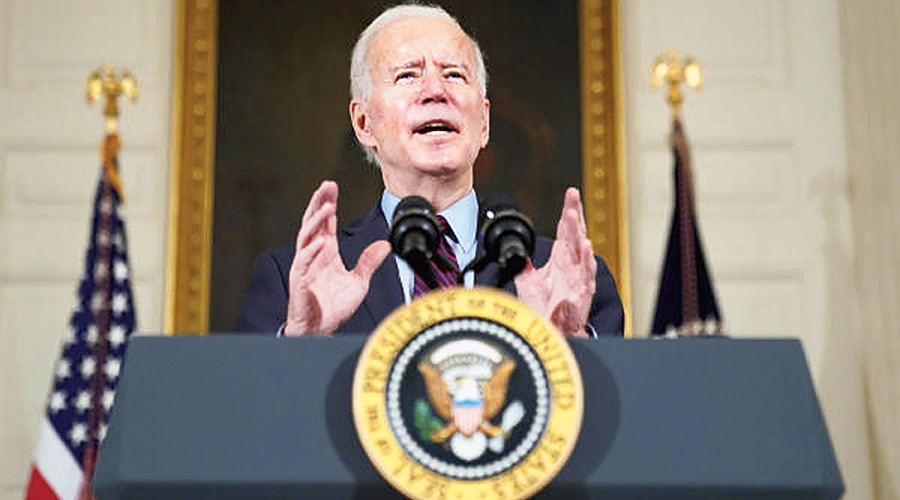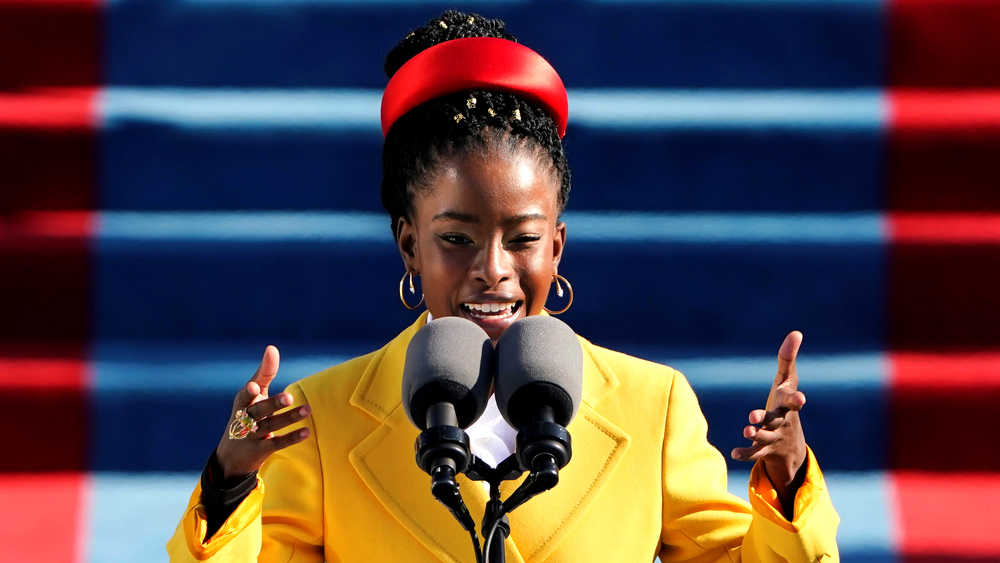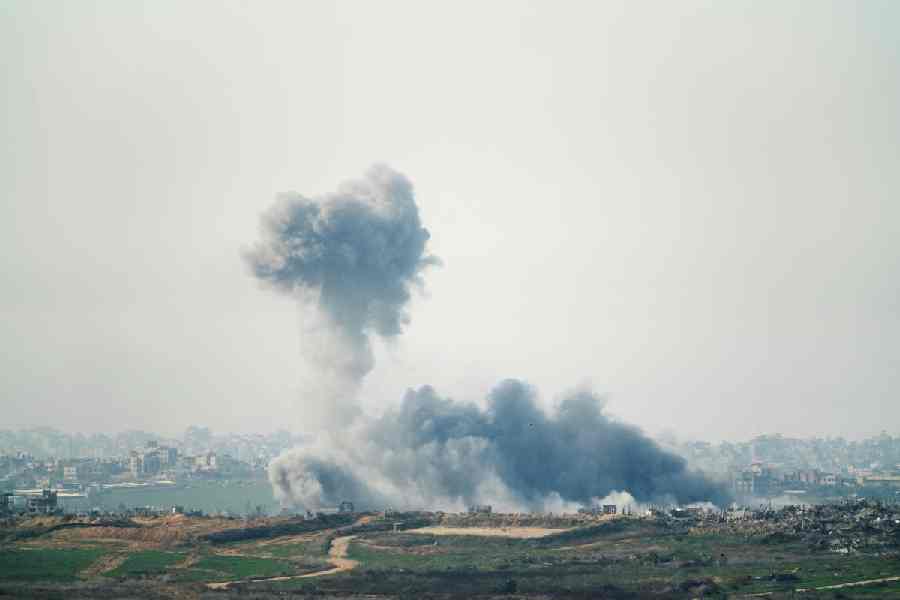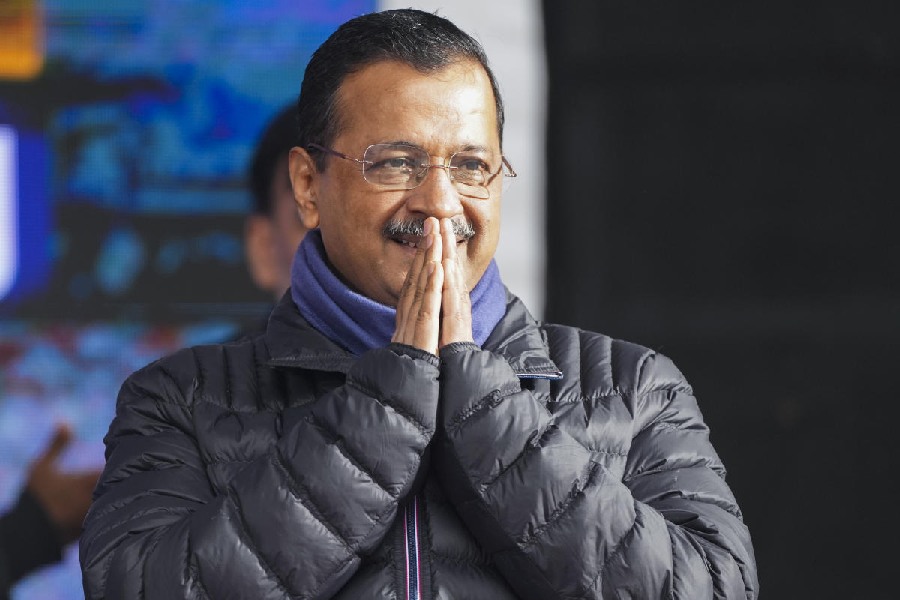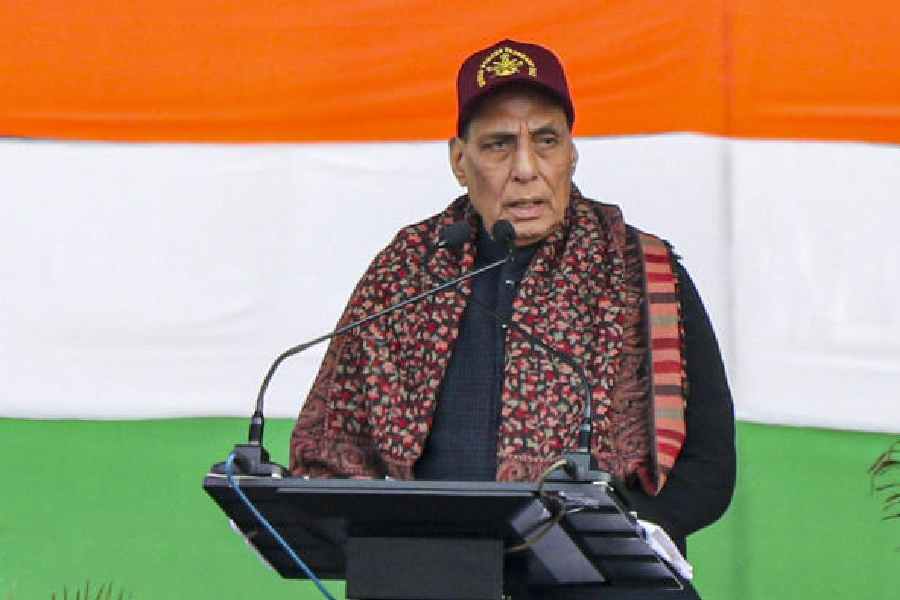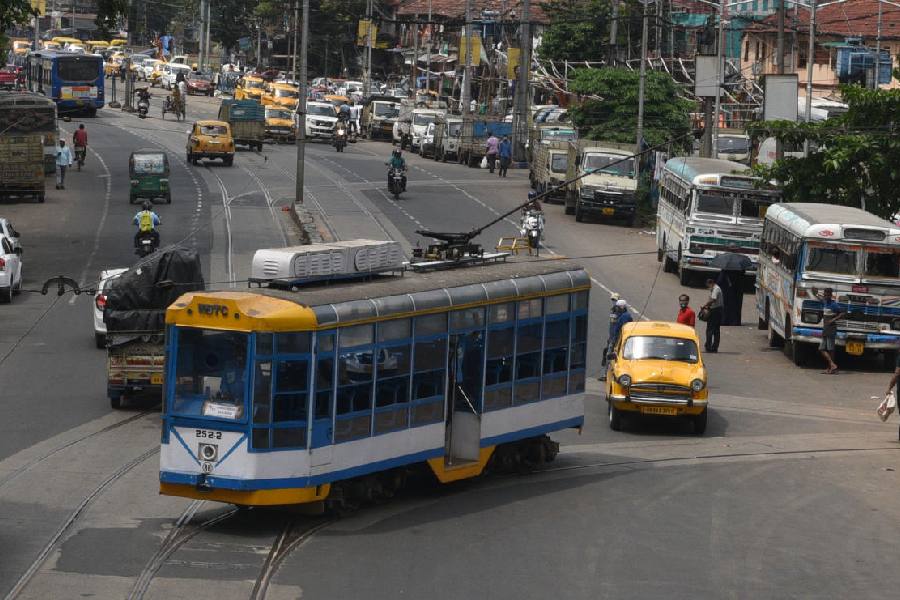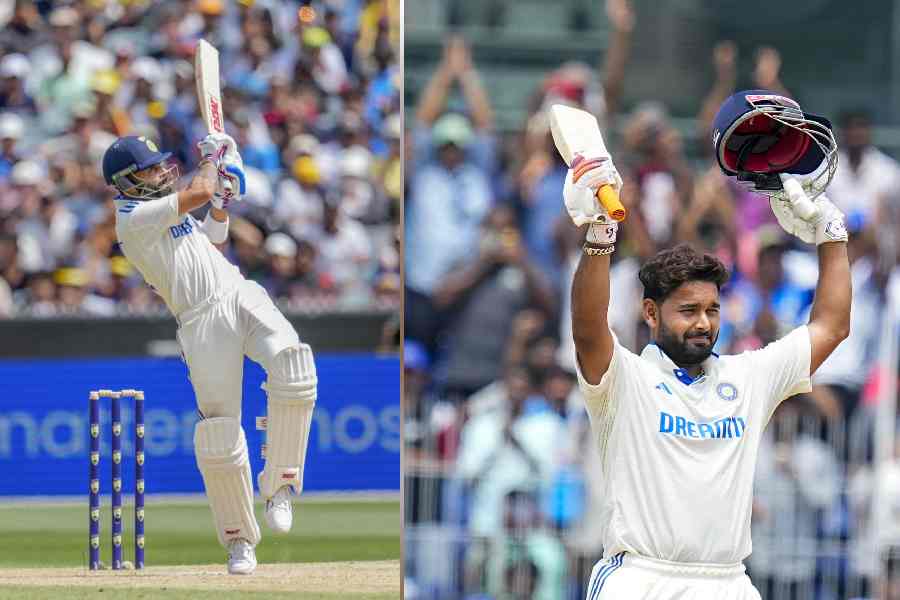If the chronology is not revealing enough, the drafter’s skill is.
11.03pm IST, Monday, Prime Minister Narendra Modi tweets: “Spoke to… (US President) Joe Biden and conveyed my best wishes for his success. We discussed regional issues and our shared priorities. We also agreed to further our co-operation against climate change.
“President Joe Biden and I are committed to a rules-based international order. We look forward to consolidating our strategic partnership to further peace and security in the Indo-Pacific region and beyond.”
1.18am IST, Tuesday, White House issues readout: “The President underscored his desire to defend democratic institutions and norms around the world and noted that a shared commitment to democratic values is the bedrock for the US-India relationship.”
2.11am IST, Tuesday, India issues readout: “They noted that the India-US partnership is firmly anchored in a shared commitment to democratic values and common strategic interests.”
Neither Prime Minister Modi’s tweets nor the readout issued by the external affairs ministry made any mention of Biden underscoring his desire to defend democratic institutions and norms around the world.
It was a near-repeat of the statement India issued after the first conversation between the two leaders following the November election victory of Biden. Then, too, Biden had talked about strengthening democracy at home and abroad.
If it was an Indian oversight then, there was an opportunity to make amends on Monday when Biden and Modi spoke to each other for the first time since the US President assumed office on January 20.
Much water has flowed down the Potomac and the Yamuna since then. The ripples of the farmers’ movement have raced past the Indian borders, and several American celebrities and influencers, including US Vice-President Kamala Harris’s niece Meena Harris, have expressed concern at the crackdown.
Evidently, now is not an opportune time for India to grandstand on “democratic norms around the world”.
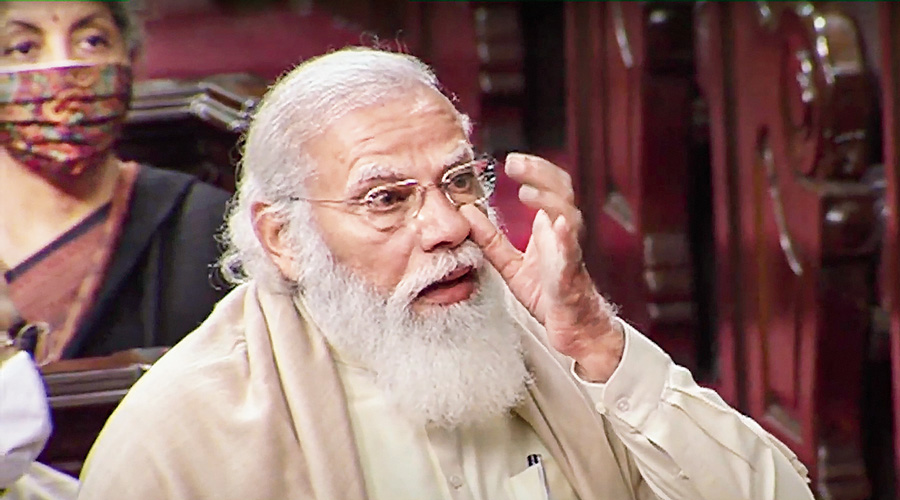
Narendra Modi wipes tears. RSTV/PTI
Although the Prime Minister tweeted first about the conversation on Monday, the White House readout was more detailed and clearly specified that Biden had talked about defending democratic institutions the world over.
The two leaders, according to the White House, also discussed the situation in Myanmar following the coup. “They further resolved that the rule of law and the democratic process must be upheld in Burma.”
The Indian readout after 2am on Tuesday also mentioned that the two leaders discussed regional developments and the wider geo-political context. “They reiterated the importance of working with like-minded countries to ensure a rules-based international order and a free, open and inclusive Indo-Pacific region.
“Prime Minister and President Biden affirmed the importance of addressing the challenge of global climate change. Prime Minister welcomed President Biden’s decision to re-commit to the Paris Agreement and highlighted the ambitious targets India has set for itself in the area of renewable energy. Prime Minister welcomed President Biden’s initiative to organise the Climate Leaders Summit in April this year and looked forward to participating in the same.”
The White House said they committed to working closely to win the fight against the pandemic, rebuild the global economy in a way that benefits the people of both countries and stand together against the scourge of global terrorism.
“The leaders agreed to continuing close cooperation to promote a free and open Indo-Pacific including support for freedom of navigation, territorial integrity, and a stronger regional architecture through the Quad,” the White House said, referring to the Quadrilateral Security Dialogue, an informal strategic forum among the US, India, Japan and Australia.

